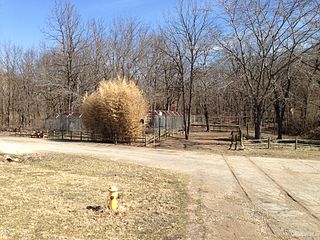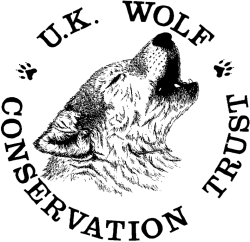 W
WThe Endangered Wolf Center is a non-profit wildlife facility in Eureka, Missouri, United States, near St. Louis that is dedicated to preserving and reintroducing to the wild critically endangered species of wolves. It is certified by the Association of Zoos and Aquariums (AZA). Visitors can tour the facility by making a reservation.
 W
WThe International Wolf Center (IWC) is a research and educational organization based in Ely, Minnesota, United States, that, in its own words, "advances the survival of wolf populations by teaching about wolves, their relationship to wildlands and the human role in their future." The Wolf Center operates an interpretive center in Ely open to the public, where visitors can view captive "ambassador wolves" in natural surroundings through large windows, and can learn about wolves through a variety of exhibits and programs. This organization lies within Superior National Forest. It also sponsors research symposia and offsite educational programs, publishes International Wolf magazine, and provides information about wolves via its website.
 W
WCalifornia Wolf Center is a 501(c)3 nonprofit located 50 miles east of San Diego, near the town of Julian, California. It is a conservation, education, and research center dedicated to wolf recovery in the wild. They are a statewide organization with staff and volunteers throughout California striving to pave the way for the return of wolves in California. Founded in 1977 to educate the public about wildlife and ecology, the Center is currently home to several packs of gray wolves, some of which play an important role in educational programs. These wolves serve as ambassadors representing wolves in the wild. The Center also hosts highly endangered Mexican gray wolves, now being reintroduced into the southwestern United States.
 W
WMission: Wolf is a remote wolf sanctuary near Westcliffe, Colorado in the Sangre de Cristo Mountains. It houses up to 40 wolves and wolfdog crosses, and works to promote a better understanding of wolves in order to further reintroduction efforts and discourage attempts to keep wolves as pets.
 W
WThe UK Wolf Conservation Trust is a non-profit organisation based in Berkshire, England. Its aims are to dispel the myths and misconceptions surrounding wolves, and to support wolves living in the wild elsewhere in Europe. It is currently home to ten wolves: Nuka, Tala, Tundra, Mai, Motomo, Mosi, Torak, Massak, Pukak and Sikko.
 W
WWolf Haven International, originally known as Wolf Haven America and Wolf Haven Country, is a wolf sanctuary and management 501(c)(3) non-profit organization headquartered in Tenino, Washington, that focuses on wolves. Founded in 1982 by Steve and Linda Kuntz, the organization provides educational programs on wolves, engages in wolf-related activism, and operates a sanctuary that houses displaced, captive-born wolves. It also fosters and participates in captive-breeding programs for two highly endangered types of wolves, the red wolf and the Mexican wolf. Wolf Haven is one of three facilities in the United States that provides pre-release housing for Mexican gray wolves bred for Southwest restoration programs.
 W
WWolf Park is a nonprofit education and research facility which was established in 1972 by Dr. Erich Klinghammer.